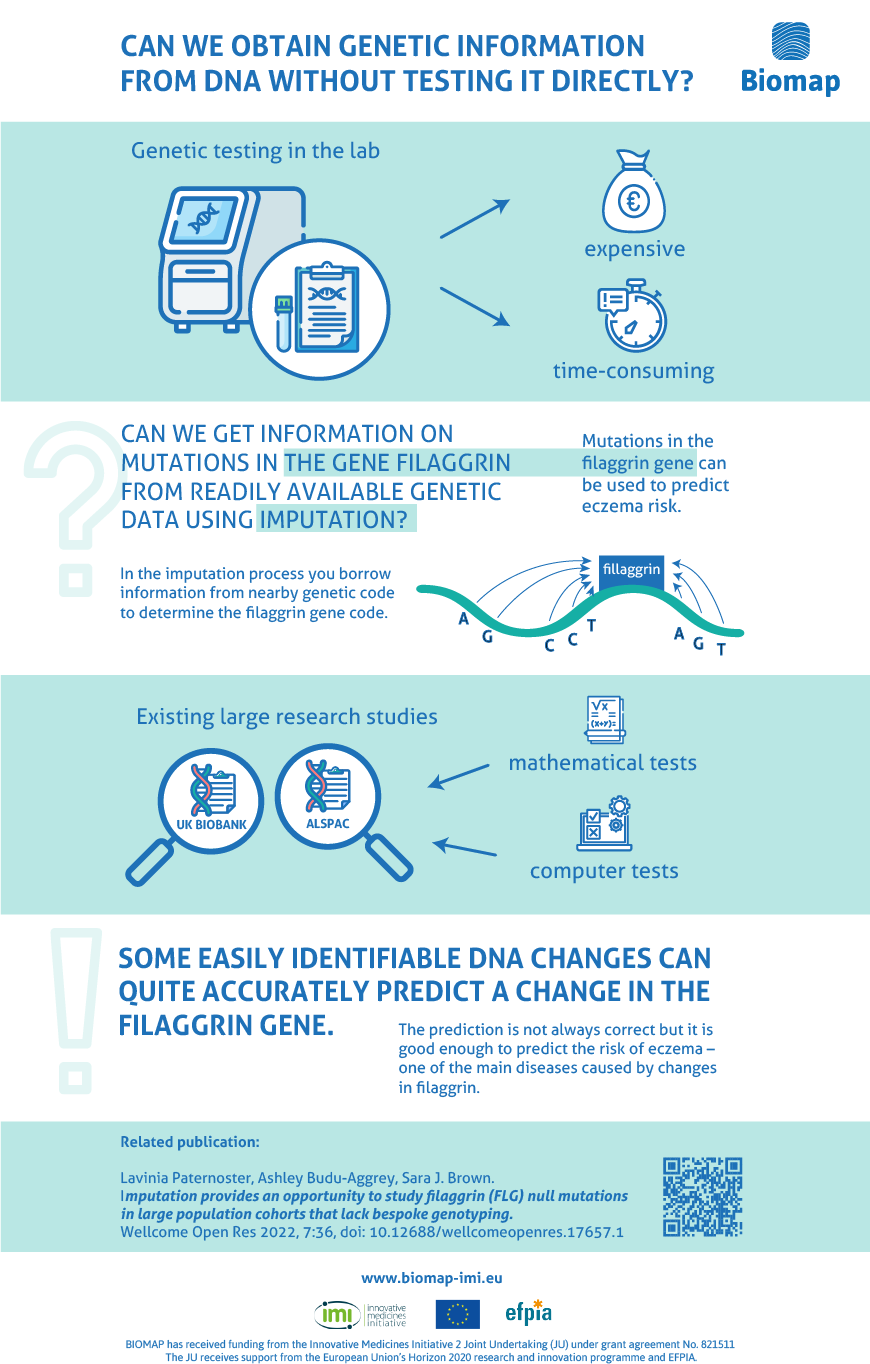Can we obtain genetic information from DNA without testing it directly?
Our DNA or genetic code controls how our bodies work in health and disease. This is because our genes spell out the codes for proteins – the building blocks of life.
One gene, called filaggrin, holds the code for a protein that helps to make skin a protective barrier for the human body. If there are mistakes in the filaggrin gene, the protein is not produced correctly and the skin is weaker or leaky. This may lead to allergies and eczema.
We can test for mistakes in genes by testing DNA in the lab, but this is expensive and time-consuming. This is a problem because we often need to study many thousands of people for genetic research.
Another way to find mistakes in a gene is to use information that is in the DNA code nearby. This can give clues to the gene we are interested in. There are two large research studies in the UK including 20 thousand people (ALSPAC) and half a million people (UK BIOBANK) with DNA information. We wanted to see if we could use this DNA information to decide who had mistakes or mutations in the filaggrin gene. We used mathematical and computer tests to see which DNA changes reliably predict the presence or absence of a filaggrin mutation, without directly testing the DNA.
We were pleased to find that some easily identifiable DNA changes can quite accurately predict a change in the filaggrin gene. The prediction is not always correct but it is good enough to predict the risk of eczema – one of the main diseases caused by changes in filaggrin.
Our work is useful because it shows that we can use large studies to give a lot of information about the filaggrin gene without needing to re-test large numbers of DNA samples in the lab. Because our work was done in the UK, with a mostly white European population, more work is needed to see how well this approach can work in more diverse populations and people-groups.
Related publication:
Imputation provides an opportunity to study filaggrin (FLG) null mutations in large population cohorts that lack bespoke genotyping. Lavinia Paternoster, Ashley Budu-Aggrey, Sara J. Brown. Wellcome Open Res 2022, 7:36, doi: 10.12688/wellcomeopenres.17657.1

